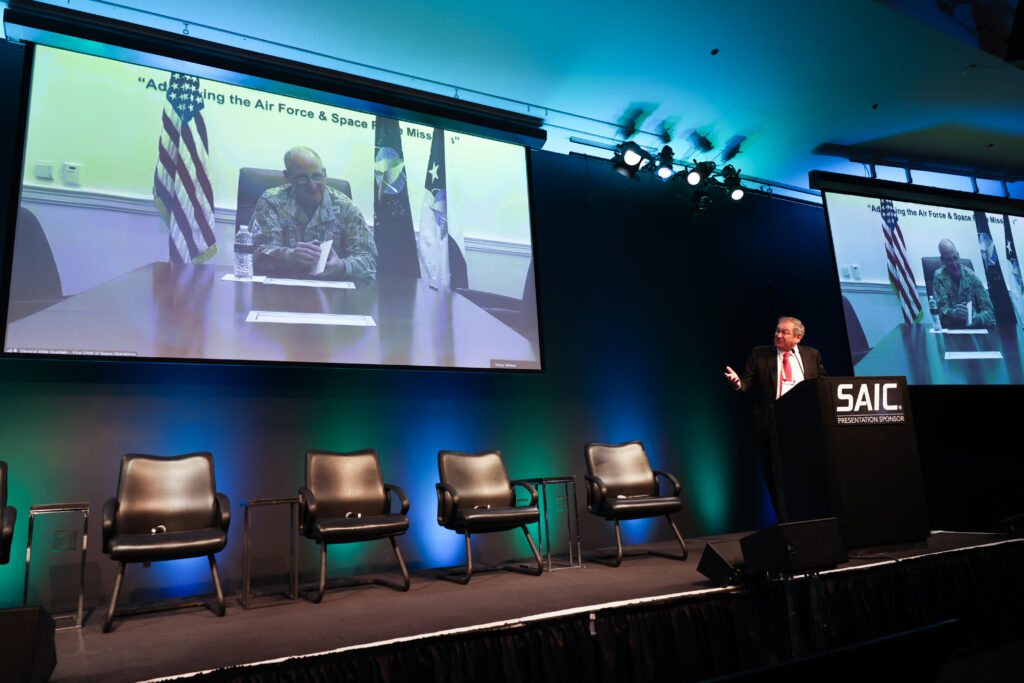In response to questions, he said there was no ‘status quo’ for propulsion systems in space and that he was looking beyond Geo.
Asked whether some aspects of space were over-classified and holding back small segments of the industry, and he emphatically said “Yes! It has been over-classified and this has restrained our dialogue and the sharing of information. We are dedicated to changing that going forward. You will see there has been a significant shift over the past 12-24 months in the amount of information that we talk about and the amount of information that we’re putting out. We are also working to reduce the classification status on many of our discussions. There is also a push to de-classify all of the space portfolio so that we can have more dialogue. This extends to having greater conversations with our allies.
He addressed launch congestion at Vandenburg and the Cape, and whether the Space Force would consider overseas launch locations. He again gave an emphatic ‘Yes. We have already launched out of New Zealand and we want to expand beyond our borders. Both major US spaceports are extremely congested and getting worse by the day. Besides, having all your eggs in just two baskets was not sensible. We are looking at greater resilience and this means more spaceports domestically and internationally.
He said his task was most excited by the space data network which would be an integrated mesh network and operating across all orbits which will give more capacity and reduce the need to bring all the data to the ground. It can be shifted from one node to another.
As to rapid response in orbit, he admitted that he saw this as being 24 hours, but there were many needs for response that was less than this, and others that could go longer. We need credible ability to react, and we must shorten our response timelines.
Spectrum superiority in a future conflict, and he said this was a huge challenge and needed partnerships with commercial partners and our allies, and we need new novel abilities to balance that spectrum. And understand that spectrum in both a time constraint and geographical constraint. In the past we looked at spectrum as always being there. We are looking at new, novel ways to take advantage of spectrum in ways that had not been thought about and across multiple domains.
As to gaps in technology what would the Space Force like industry to tackle? There are many gaps, but one is propulsion. We plan all our manoeuvres today on conserving energy, and while that might be efficient but warfare is not always efficient and we need new ways.
As to the future for launch, he said he wanted assured access to space. This meant multiple providers, multiple launch platforms and a guaranteed reliability. We are not betting on a single horse.
Talking about the lost Intelsat craft he said the Space Force needed the ability to inspect this problem in order to understand what happened and to prevent it happening in the future. But the Space Force was resource challenged.
He described problems suffered by the commercial sector from outside sources as unsafe, unprofessional and antagonistic.
He said inspection and on-orbit servicing was to be welcomed and said it was only a matter of time before safe and professional behaviour was hopefully enshrined in agreements and law.

